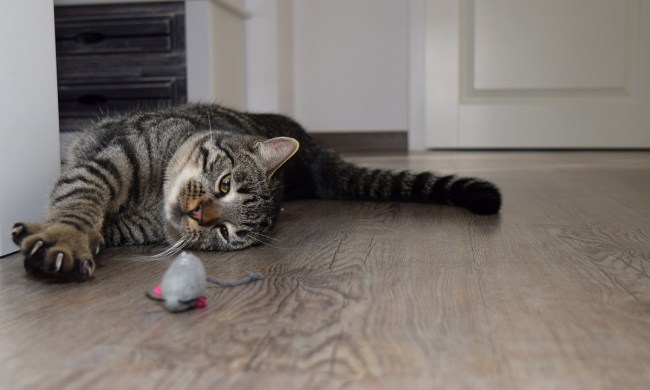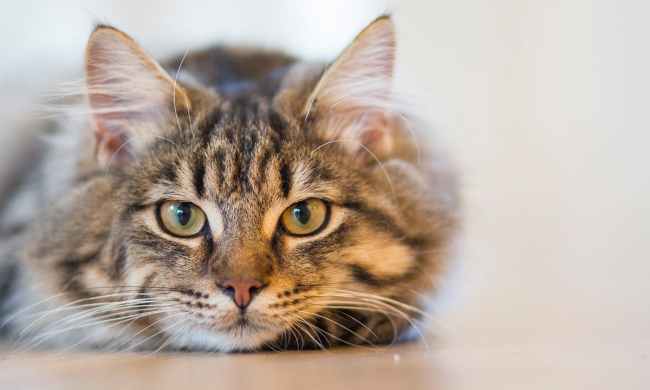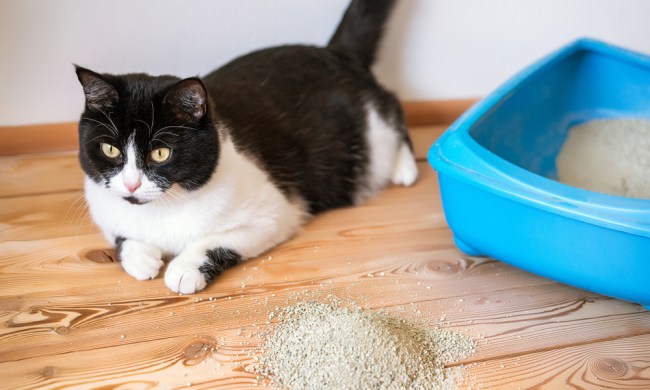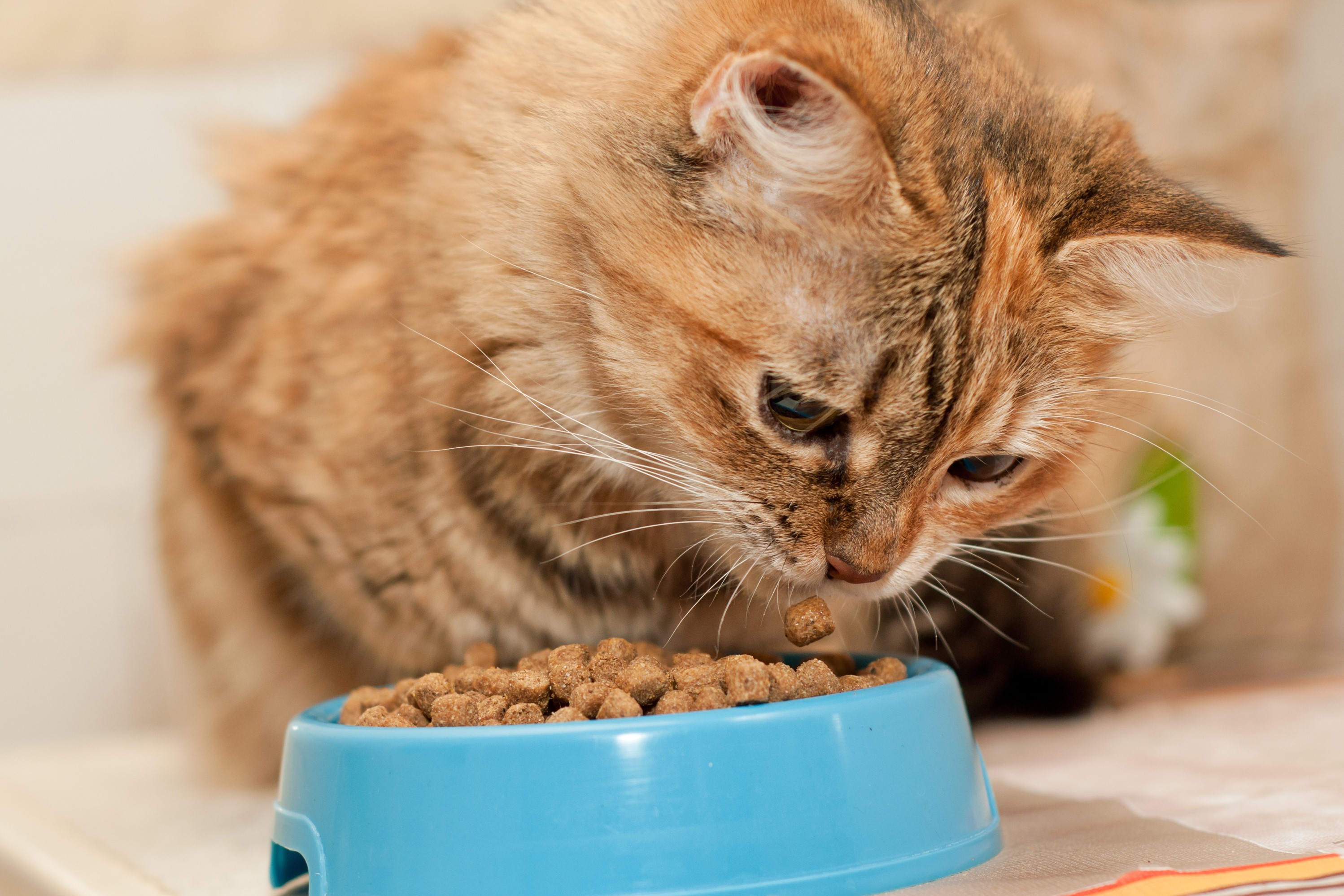
If you have a cat obsessed with food, you’re probably all too used to hearing them beg for food constantly, especially anytime you go into the kitchen. However, if your cat begging for food is getting out of hand, you’ll need to step in and make some changes to discourage this begging. Plus, some foods aren’t safe for cats to consume, anyway.
Cats may beg for food because of boredom, habit, or hunger, so getting to the root of your cat’s behavior is essential when trying to change it. These tips can help you better understand how to get your cat to stop begging for food, so mealtimes become much less stressful for you both.
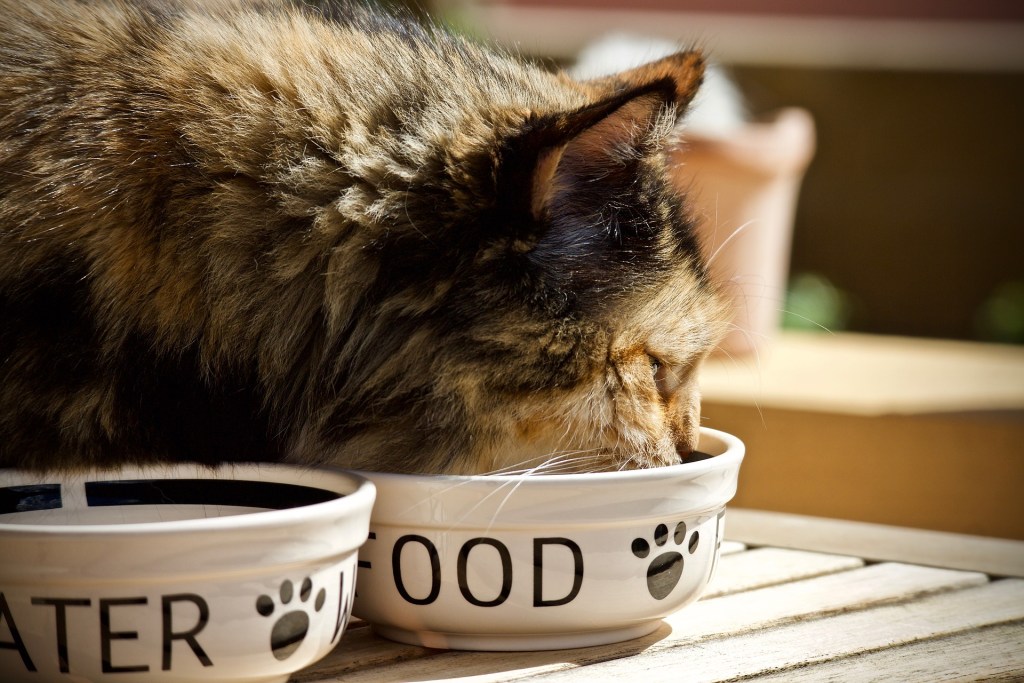
Start with a trip to the vet
If your cat is always begging for food, it could indicate a health issue. Worms and intestinal parasites could be feeding off your cat and making them feel like they’re always hungry. Hyperthyroidism is a common health condition that can also make cats feel continuously hungry. Other health issues like cancer and diabetes can have a similar effect.
If your cat has recently developed this new behavior, it might indicate a physical issue. Make an appointment with your vet to have your cat checked over, just in case. In many cases, treating the underlying health issue can leave your cat feeling satisfied again and make the begging behavior disappear.
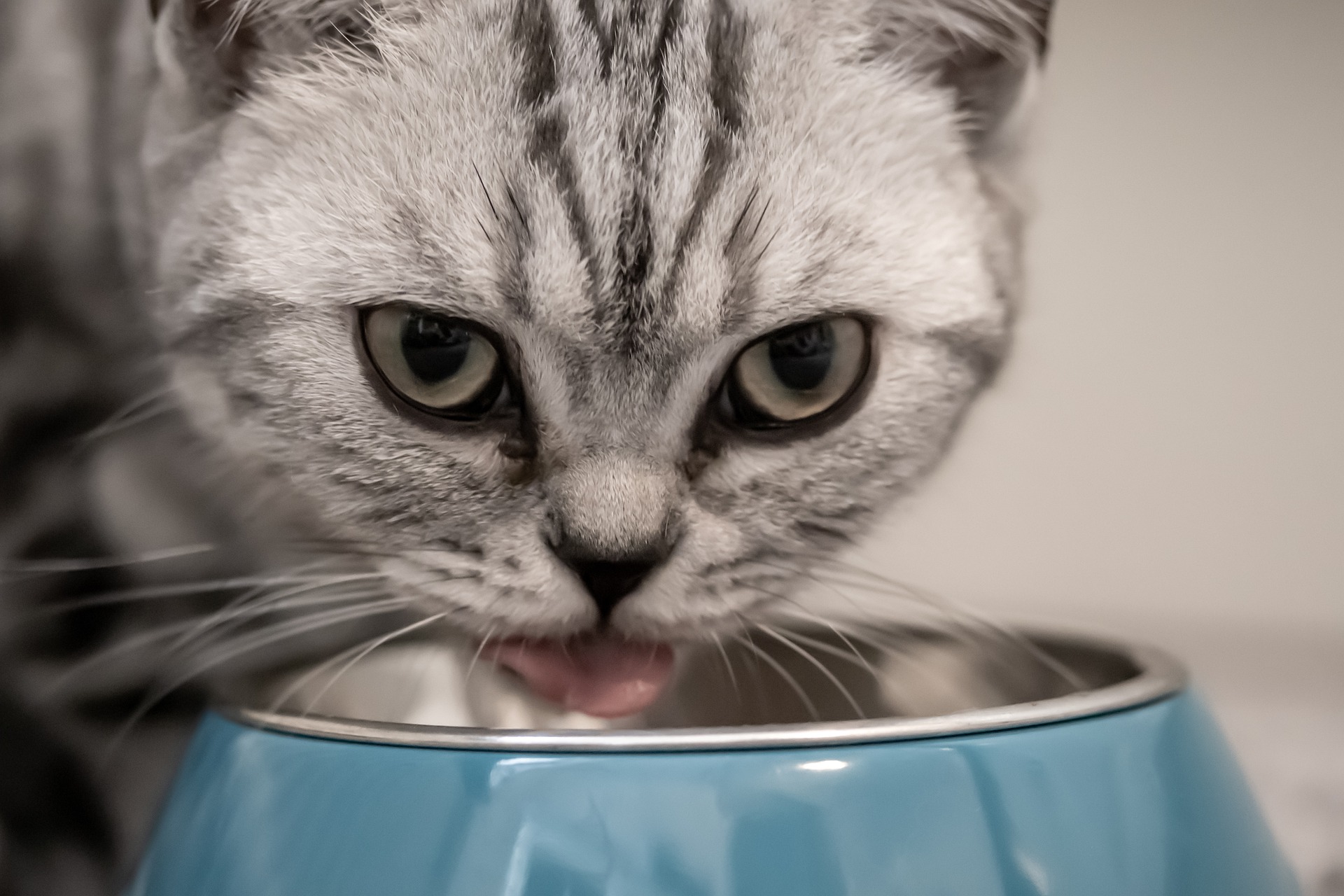
Break up mealtimes
If you’re feeding your cat just once or twice a day, they might actually be hungry and might be begging because of that hunger. Try breaking up your cat’s meals into smaller, more frequent feedings and see if this resolves the issue.
You don’t necessarily have to be available to feed your cat many times each day. Instead, you can use an automatic feeder that releases food on a timer. This can break up mealtimes and helps keep food in your cat’s tummy throughout the day.
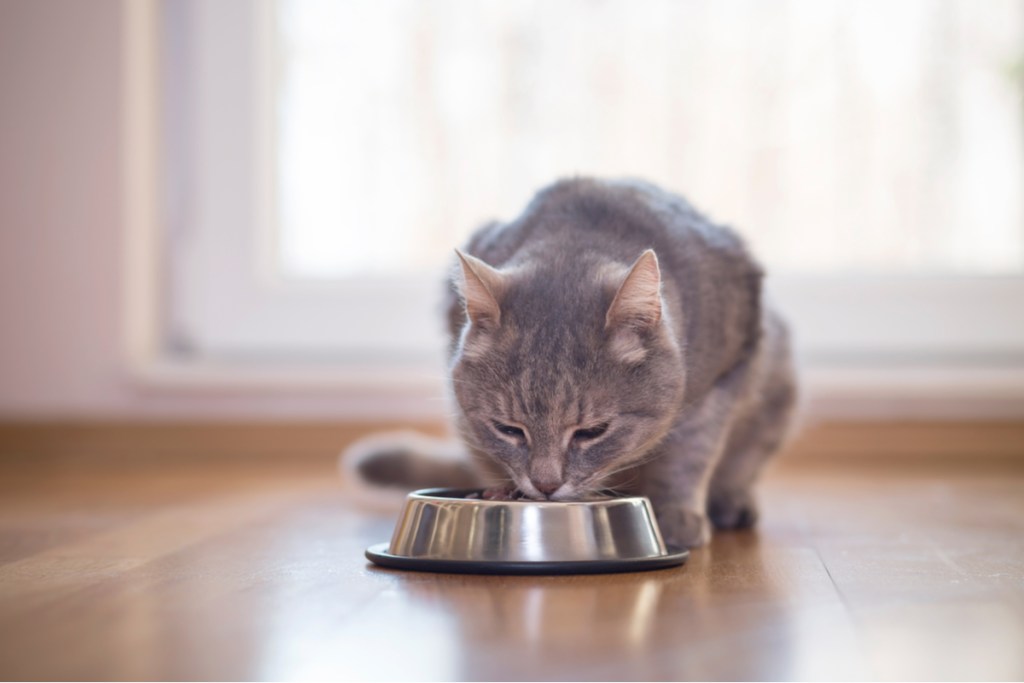
Evaluate your cat’s nutrition
A diet lacking in the nutrition your cat needs can also leave them still feeling hungry, even after they’ve emptied their bowl. Check the feeding directions on your cat’s food to make sure you’re feeding enough, and if you’re feeding a lower-quality food, consider upgrading to see if that helps. You might want to discuss your cat’s diet with your vet to make sure that it’s appropriate for their age and health needs.
You can also try changing the types of food you’re feeding. Wet food tends to be more filling, so if you’re not feeding wet food, try gradually adding it to your cat’s diet. Alternatively, you can add water to your cat’s dry food to help your cat feel a bit fuller, sooner.
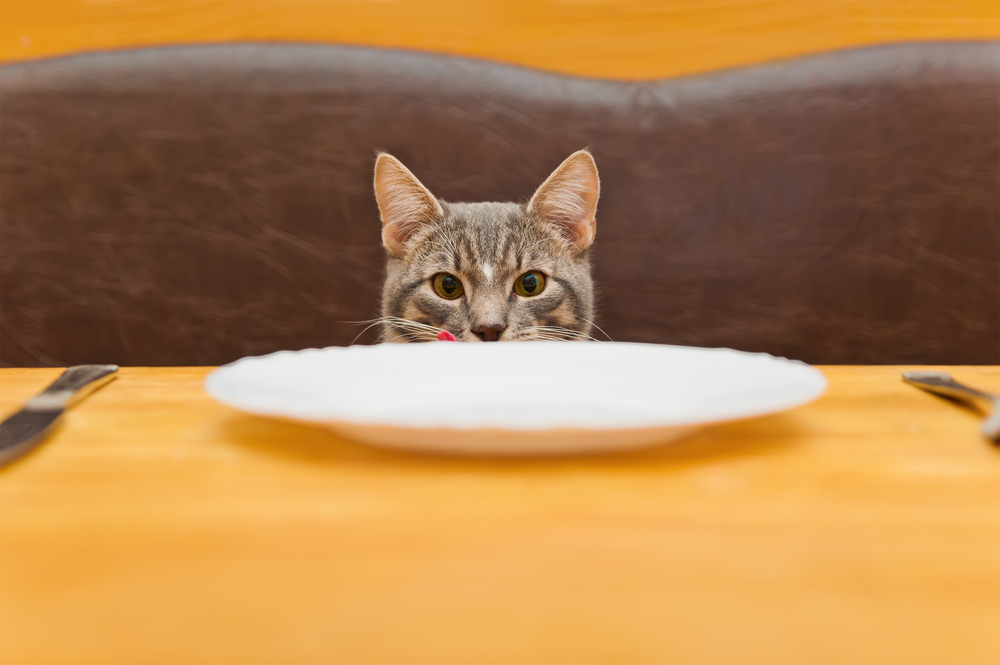
Change where you feed your cat
If your cat’s food bowls are in your kitchen, chances are you walk through that room multiple times a day. When your cat sees you head for the kitchen, they probably think you’re going to feed them, and they start to beg.
Try moving your cat’s dishes to a quieter part of the house, like a laundry room or guest bathroom, where you spend less time. Since you’re not constantly walking by the bowls, your cat won’t necessarily expect that you’re getting up to feed him.
You might also try removing your cat’s food dishes after they’ve finished with a meal. Some cats fixate on the fact that their dishes are empty and use that as an indication that they should ask for more food, even though they’ve just eaten. Removing the dish might help avoid this reaction.
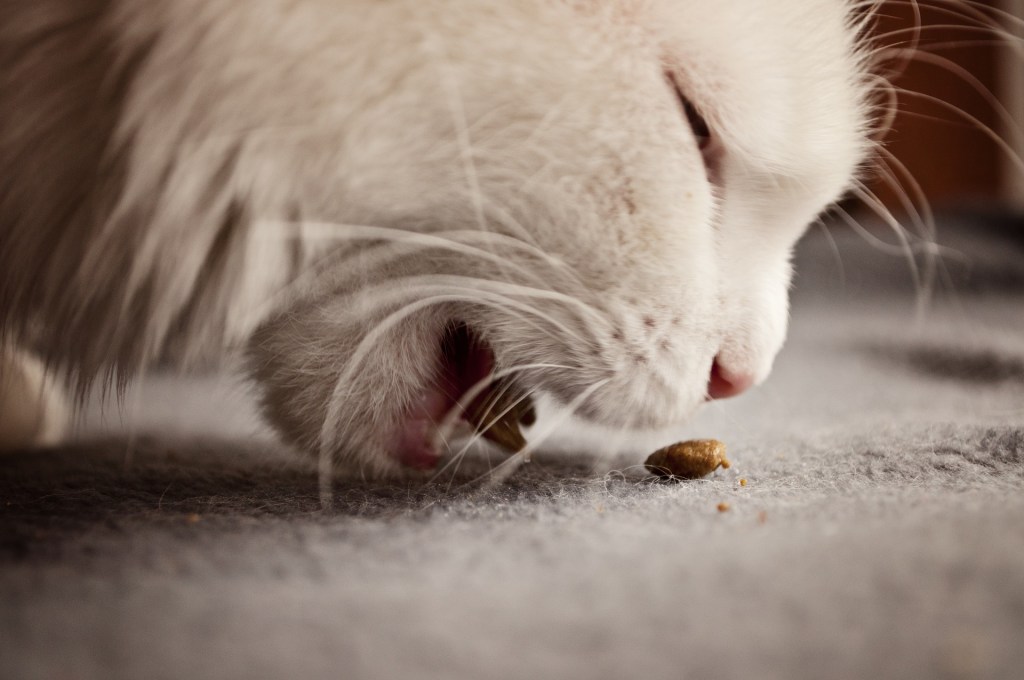
Introduce plenty of play
If your cat is begging because they’re bored, they might benefit from increased playtime during the day. Try to hold at least a couple of play sessions with your cat. These sessions can help distract them and keep them entertained, so they’re less likely to think about when they’ll be getting their next meal.
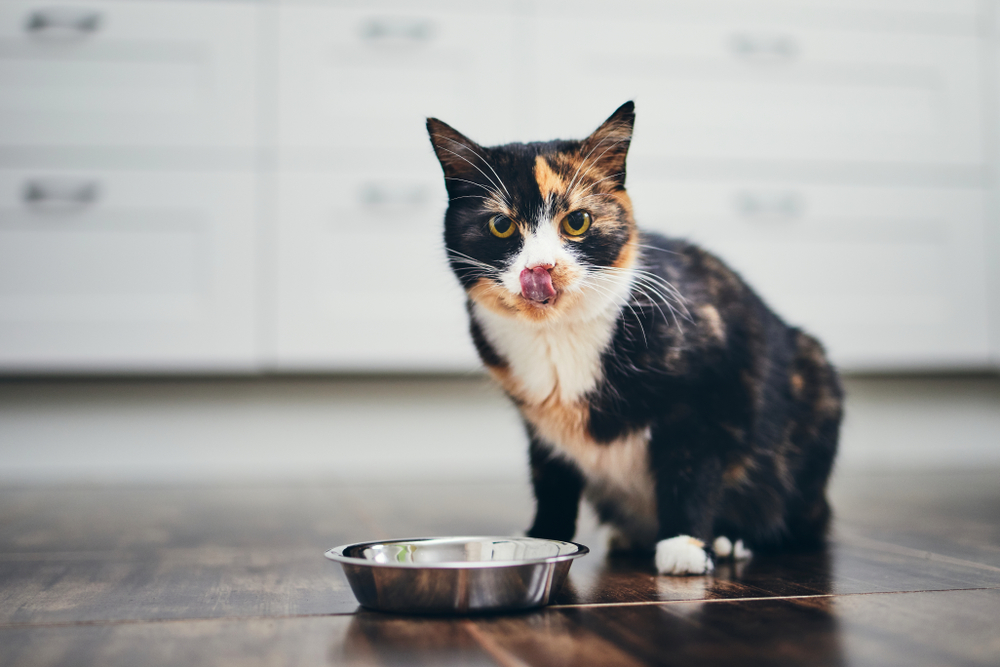
Ignore your cat
As harsh as it sounds, pretending not to hear your cat begging for food might be the best way to curb the habit once and for all. We only recommend this step after your vet has ruled out any potential health problems, as ignoring your cat’s cries should never be your first line of defense. However, if your fur baby has a clean bill of health, you can safely tune out their incessant mewing.
Because cats respond to positive reinforcement (your attention in this case), they’re more inclined to continue what they were doing when you acknowledged them. If that happens to be meowing loudly, you’re actually reinforcing their behavior.
Once your cat realizes you’re the person who feeds them, they’re likely to beg, at least sometimes. Avoid giving in to the begging, since this just proves to your cat that they’ll get food if they beg for it. Instead, try the above solutions and see if you can figure out what’s motivating your cat to beg for food. Ensuring that they’re full and entertained can help reduce the begging and keep them more content. These solutions probably won’t work immediately, and your cat may beg out of habit, but with some time and patience, you may see a difference in your cat’s behavior.
